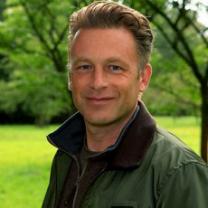Nature's Weirdest
Nature's Weirdest

-
Premiered:
- Network: BBC2
- Category: Series
- Genre: Documentary
- Type: Live Action
- Concept:
- Subject Matter: Animal
- Tags:
Buy This Show on DVD or Watch Online
No DVDs Available
(That We Know Of)
(That We Know Of)
Legal Full Episodes
Not Available Online
(That We Know Of)
Not Available Online
(That We Know Of)
Plot Synopsis
With the help of footage taken by eyewitnesses and news crews, NATURE'S WEIRDEST follows Chris Packham as he examines some of the weirdest creatures and natural events on the planet, explaining what really happened. In each one-hour episode of NATURE'S WEIRDEST, Chris explores four of five different mysterious cases, including: a car cocooned by caterpillars in Holland; exploding toads in Germany; a lakeside town is entombed in ice in Switzerland; a once-in-a-lifetime storm that turns Sydney, Australia crimson overnight; milky seas in Australia, where sea foam makes the water look like a bubble bath; thousands of sea birds dying on America's west coast; fish falling from the sky in south London; a sinkhole in a Florida nature reserve that swallowed an entire lake; and many more events and animals that made headlines around the world. BBC America aired the U.S. premiere of this series on Tuesday, July 22, 2014 from 9-11pm ET/PT, showing both episodes of the first season back-to-back.
----------------------------------------------------------------------------------------------------------------------------------------------------------------
On Tuesday, May 5, 2015 at 9pm ET/PT, BBC America aired the U.S. premiere of the fourth season of NATURE'S WEIRDEST. The Season 4 opener features scores of pigs swimming in the Caribbean, a tiny tick that is turning Americans to vegetarianism and a giant worm that is invading fish tanks.
Cast
- Chris Packham - Host
Other Titles
- Originally aired in the UK as: Nature's Weirdest Events
Production & Distribution
- Produced by BBC Natural History Unit
